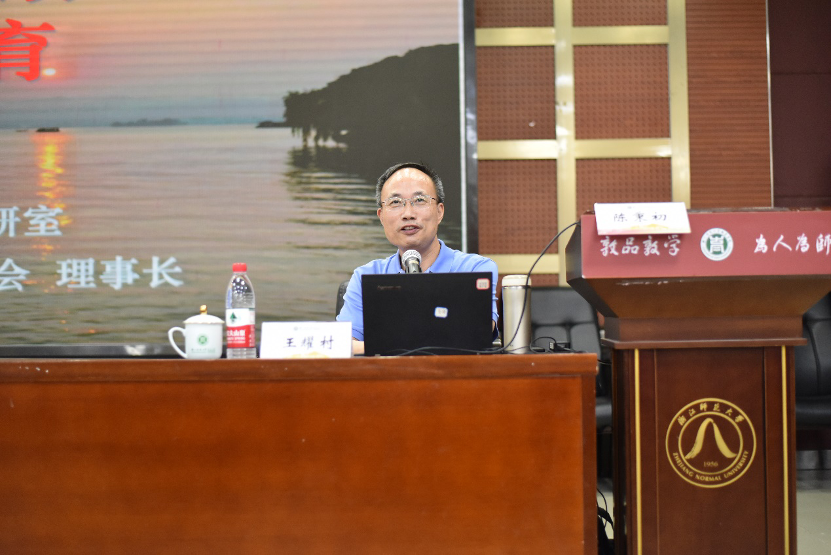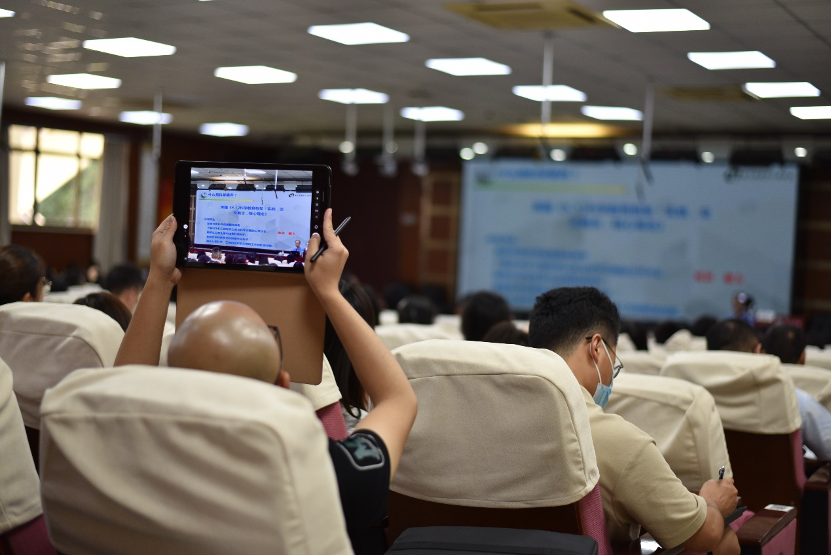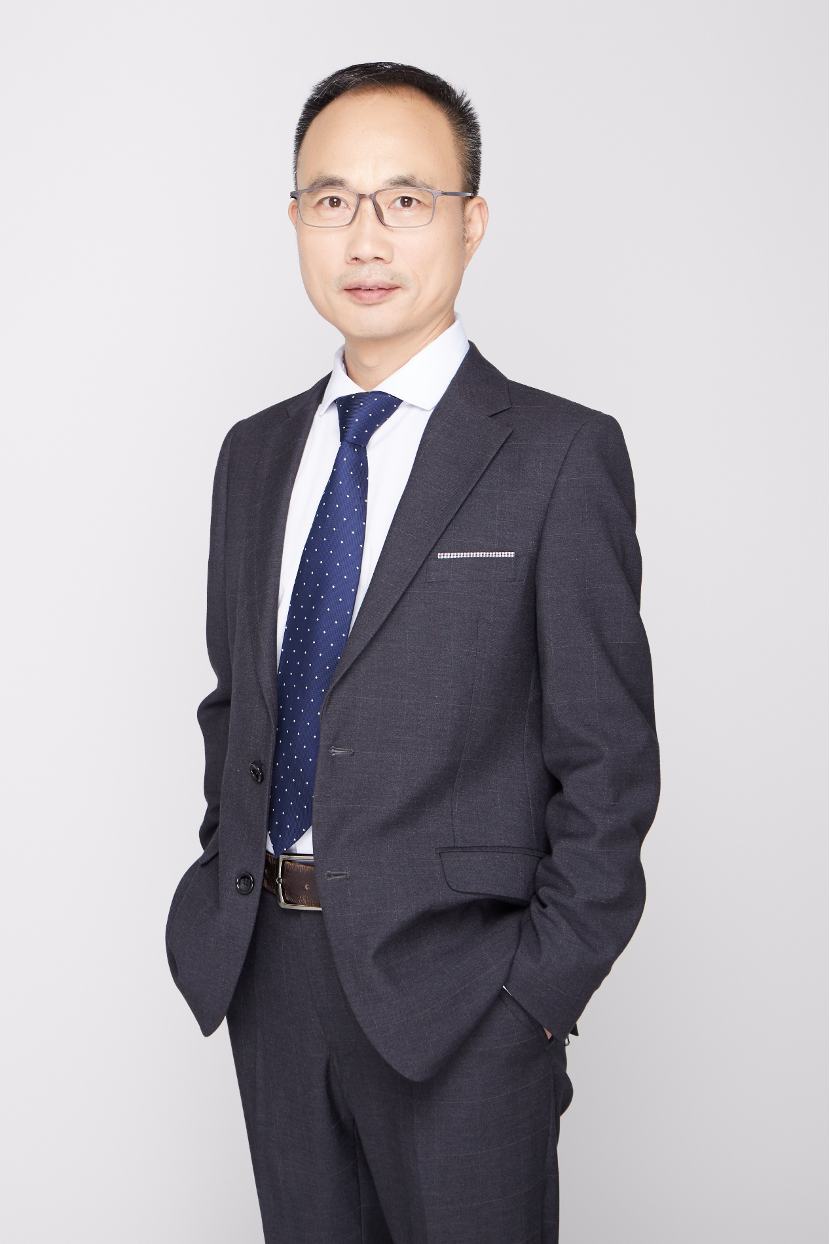On the afternoon of July 21st, Wang Yaocun, a senior and exceptional teacher from Zhejiang Province, gave us a special lecture on "Science Education to Promote the Development of Students' Core Literacy". The lecture was hosted by Professor Chen Bingchu from the School of Education (Faculty of Teacher Education) of Zhejiang Normal University. More than 200 science teachers from primary and secondary schools in the province came to the scene to listen.

Wang Yaocun reviewed the development and changes of science curriculum standards in compulsory education in China over the past 30 years, emphasizing that scientific literacy has been our unremitting pursuit for over 30 years. As a science teacher, in the new round of curriculum reform, we must effectively prioritize scientific literacy as an important goal and implement it in the classroom.
In explaining the concept of scientific literacy, Wang Yaocun mentioned that understanding the necessary scientific and technological knowledge and its impact on society and individuals, understanding basic scientific methods, understanding the essence of science, establishing scientific thinking, advocating scientific spirit, and possessing the ability to apply them to handle practical problems and participate in public affairs. Last year, China published a new science curriculum standard, which proposes that science courses should cultivate students' core competencies. This scientific core competency refers to students' correct values, essential qualities, and key abilities, including scientific concepts, scientific thinking, exploratory practice, and attitude and responsibility. Wang Yaocun believes that the core scientific literacy mentioned in the new curriculum standards has consistency with scientific literacy, but there are also differences.

Wang Yaocun emphasized the four secrets of cultivating scientific exploration practice abilities through the example of scientific exploration practice, which are to do more exploration practice, to do real exploration practice, to do real exploration practice, and to do well in exploration practice. He then used the case of the "Feynman phenomenon" to emphasize the importance of curiosity and hands-on experimental ability, and talked about strategies for cultivating students' scientific thinking abilities (scientific reasoning and argumentation, questioning and innovation).
Finally, Wang Yaocun used the results of the Zhejiang Student Science Literacy Assessment (PISA), the National Compulsory Education Quality Inspection, and the Chinese Citizen Science Literacy Sampling Survey as evidence to point out the confidence and determination to do a good job in science education addition and develop high-quality science education.

Wang Yaocun, a special level teacher, is a junior high school science researcher at the Teaching and Research Office of the Zhejiang Provincial Department of Education. He also serves as the Vice Chairman of the Science Education Branch of the Chinese Education Society, the Director of the Physics Teaching Professional Committee of the Chinese Education Society, the Leader of the Junior High School Science Group of the Zhejiang Provincial Basic Education Curriculum Reform Professional Guidance Committee, the Vice Chairman and Secretary General of the High School Science Teaching Branch of the Zhejiang Provincial Education Society, and the editorial board member of the "Physics Teaching" magazine of the Chinese Physics Society; Master's degree supervisor in education at Zhejiang Normal University and Hangzhou Normal University.